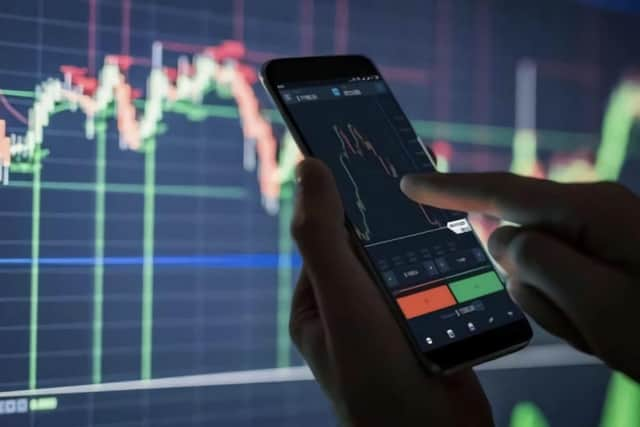Why leverage is under regulatory scrutiny in the Forex industry


They are explaining how to use leverage by borrowing investment capital, which can then be used for other purposes.
Leverage is typically borrowed from a broker when trading Forex. In the sense that a trader can build up and control a large amount of money for a little initial margin requirement, Forex trading does offer significant leverage.
Advertisement
Hide AdAdvertisement
Hide AdReal leverage, on the other hand, has the ability to increase your profits or losses by the same amount.


The risk you take on rises in direct proportion to the amount of leverage you apply to your capital. As a result of this, regulated brokers like Exness have had to reconsider the leverage offered.
Regulatory bodies such as the FCA has begun to scrutinise leverage ratios and the impact it has on severe trading losses suffered by inexperienced retail traders. In this article, we take a closer look at the reasons why leverage has come under regulatory scrutiny.
Why is leverage risky?
Because it helps traders and investors accelerate their potential returns, leveraged trading has become a very appealing choice.


Advertisement
Hide AdAdvertisement
Hide AdBut, regrettably, it is the people with little money and little understanding who are drawn to highly leveraged markets because they believe they may become much wealthier in a shorter amount of time than via any other trading approach.
However, in actuality, this is not truly the case.
In the same way that leverage can increase your profit, it can also increase your loss.
A specific concern is that the financial sector features excessive trading volume that does not necessarily benefit market participants, but that enriches the institutions that intermediate those trades.
Established theories show that behavioural distortions (such as overconfidence) naturally induce investors to undertake speculative trades that lower their own risk-adjusted returns.
Advertisement
Hide AdAdvertisement
Hide AdTherefore, offering leverage to clients who are not wholly able to trade the markets successfully puts them at greater risk of suffering irreversible and damaging financial losses, a situation which regulators seek to deter by essentially protecting overzealous traders from themselves.
Regulatory restrictions imposed on maximum leverage ratios
In late 2020, consumer protections were strengthened by ASIC through its decision to limit CFD leverage available to retail customers and by addressing CFD product characteristics and sales practices that compound retail clients' CFD losses.
This decision also aligns Australian practices with those of other countries in the same industry.
Most credible regulators limit retail clients' access to leverage, and ASIC is the latest to do so, with a 1:30 maximum.
Advertisement
Hide AdAdvertisement
Hide AdCustomers will be compelled to prove that they are eligible to trade with a 1:500 leverage or settle for 1:30 or 1:20, which may reduce risks but also earnings.
Regulations are based on customer complaints about inadequate risk warnings and misleading marketing campaigns, according to regulators.
As a result, clients will benefit from a reduction in leverage and increased regulatory scrutiny and reporting.
Margin trading in FX has long been regarded as a high-risk/high-reward activity.
Advertisement
Hide AdAdvertisement
Hide AdHowever, many traders now look to offshore brokers that can still offer 1:500 leverage for clients who believe they have the ability to trade or who are just searching for quick returns.
Some brokers are legitimate and have various licenses, while others are essentially scams that operate from an offshore organisation says Louis Schoeman from ForexBrokers.ke.
Customers are exposed to additional dangers, such as price manipulation, the inability to file a complaint with a regulator, unfair business practices, and a lack of security of funds, while being offered the desired leverage.